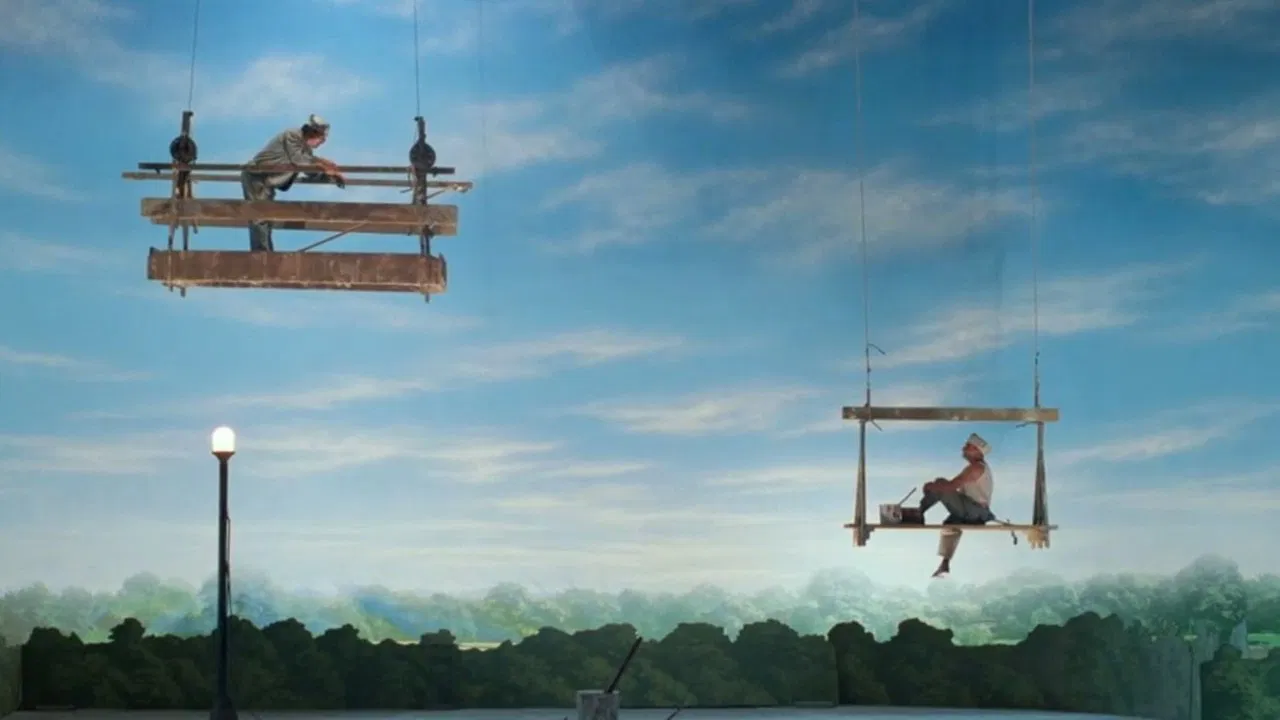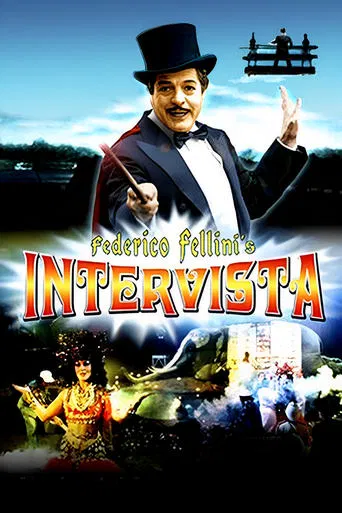

How sad is this?
... View MoreThe acting is good, and the firecracker script has some excellent ideas.
... View MoreBy the time the dramatic fireworks start popping off, each one feels earned.
... View MoreLet me be very fair here, this is not the best movie in my opinion. But, this movie is fun, it has purpose and is very enjoyable to watch.
... View MoreThis is a beautiful Fellini, one the most beautiful he ever made and I don't understand why is so underrated. A joy to watch from beginning to end, a visual gem, a masterpiece; one with which the master confounds the skeptics, shows he's still in top form. I don't remember any other Fellini containing such breathtaking scenes, astonishing in their exuberance and richness in color as that in the oriental set with Maharajahs and elephants or those carrying such evocative power as that of the two aging European sex symbols of the 1960s watching themselves on a white sheet, shedding a few tears and drinking to the good old times. Oh, to be young and beautiful again...(sigh). Oh, and that final sequence of the cast and crew huddling inside the plastic tent during a storm, the collective soul going from joy and euphoric enthusiasm to muted, thoughtful melancholy, while bathed all with the music coming from the back of the truck under the rain. There's also something surreal about that haunting scene, under the rain, behind the rain, that makes it stay with us for a long time, forever: the girl blowing it away in her saxophone and the boy taking it away at the piano, both framed by the big box of the vehicle; a beautiful portrait of ineffable energy and youthful poetry. Oh, and also nobody, nobody but Fellini himself could have done a better job playing The Maestro at his best, with the juices of creativity pouring through each one of his pores.This is Fellini at his best, the full essence of his genius distilled in a single cinematographic piece, where he reaches his own outer limits. For one thing, I noticed here a great number of scenes with deep, ample backgrounds--even in some interiors--except for those where such a thing was impossible--the inside the trailer of the diva for ex.. But you will rarely see here characters in closed, claustrophobic quarters or plastered against a wall. I'm not a film scholar or a psychologist, but to me that means that at this point Fellini had finally become master of his space, that he totally owned his surroundings. He was free at last to do pure cinematographic art without being burdened by ghosts from the remote past, by the heavy load of unsolved traumas; he had finally exorcised his demons—even the resident fascist here is a nice, inoffensive little old man—and so become the filmmaker he always wanted to be. It is in this film where the master has reached his peak. Intervista is a cinematographic gem from beginning to end. The pacing, the acting, the score are impeccable, flawless; so much so, you find hard to believe that any of this could have been prepared, scripted, rehearsed as any regular movie, it feels so spontaneous, so authentic.This is a movie that Fellini had absolutely to make. He owed that to the world, his legacy wouldn't have been complete without it. The world can do without 8 ½ but it absolutely needs Intervista. And Fellini was one of the few chosen who could accomplish such a feat--the only other one I can think of being Buñuel. Because here we see the real man, Fellini in all his humility and humanity, a man in love with movies and people. I have seen enough movie shootings in public places to know that this can be at times a very stressful activity and tempers tend to flare during difficult times but I don't have any doubt that the joy and enthusiasm his collaborators show working with him here is real. I can't possibly imagine Hitchcock or Kubrick getting away with the same thing and I'm even less sure we would have wanted to watch their respective "Intervistas". But Fellini not only shows us how he shoots movies, he makes us also part of his team, we become—in the flesh of the Japanese journalists, the young actors, the crew—part of his family. Already in the introductory shot he makes clear we are his invites in that metaphoric opening wide of the gates of Cinecitta and in the fact that he's himself the one to greet us, no some subordinate or studio bureaucrat. That's enough to reassure us that what we'll get during the next 104 min. will be the real deal.Another thing I loved about Intervista is that it is a movie that doesn't take itself seriously, probably to the image of his creator. There are some hilarious moments that can only be seen as his ironic or sarcastic comments about movie directors in general or even himself: For ex., the director who won't settle for anything less than a pear for lunch. Or the other one who suffers a meltdown when a cardboard cut elephant drops its trunk. I found also the commercials very good and very tasty, said to have been Fellini's concepts. And finally, the score, a put pourri of some scores of other Fellini's films, the kind of music you'll like to be the last thing you hear when leaving this world.In all, perhaps not the best but certainly the most beautiful, most joyful, of all Fellini's. 9/10.
... View MoreFor me, it does fall short of Fellini's most classic movies like Nights of Cabiria, La Dolce Vita, 8 1/2, Amarcord and La Strada. But it is one of Fellini's better later films along with Ginger and Fred and When the Ship Sails On, and I connected more to Intervista than other Fellini's like Casanova, Juliet of the Spirits and especially Satyricon. Intervista is superbly directed by Fellini, restrained yet insightful, and the visuals are gorgeous. The music is brightly characterful and sweepingly beautiful, and the basic story is very interesting in its balance of past and present blurring, studio reality and cinematic illusion as well as being packed with numerous jewels of the screen. It is also one of Fellini's most personal in its nostalgic themes, and balance of humour, surrealism, restless action and beauty. But what makes it especially so is the poignant climax, a beautifully staged reunion between La Dolce Vita stars Marcello Mastroianni and Anita Ekberg. Overall, I knew right from the title what to expect, and I got exactly what was promised from the title and summary. Not one of the classics of Fellini, but underrated and interesting. 9/10 Bethany Cox
... View MoreIntervista is one of the best films I've ever seen. The strong sense in all Fellini films that reality is like a big, sad circus is even stronger in this film because fact and fiction, past and present become so confused. The fictitious carnival appears to be reality. And isn't that maybe quite a realistic view?There is not only the usual sense of nostalgia: because the film looks back at decades of Fellini nostalgia, the nostalgia is double. Who can watch the older Anita and Marcello looking back at La Dolce Vita with dry eyes? The only possible critic could be that the film is, like all Fellini movies, little coherent, but then, isn't that as well like life itself?Intervista maybe isn't the most famous Fellini films, it certainly is one of the better ones and with that one of the best films in cinematographic history.
... View MoreWatching Fellini's "Intervista" is a mixed bag--sadness, frustration because it is not better... coupled with moments of brilliance. I'm not sure there is a more poignant moment in the movies than the scene of a wrinkled Marcello Mastroianni and obese Anita Ekberg wistfully watching their former youthful black & white selves in "La Dolce Vita" being projected on a makeshift screen. That scene alone is a richly-charged commentary on time, memory, regret, self-delusion, love, missed opportunity, life and death--unlike any other I have ever seen.
... View More